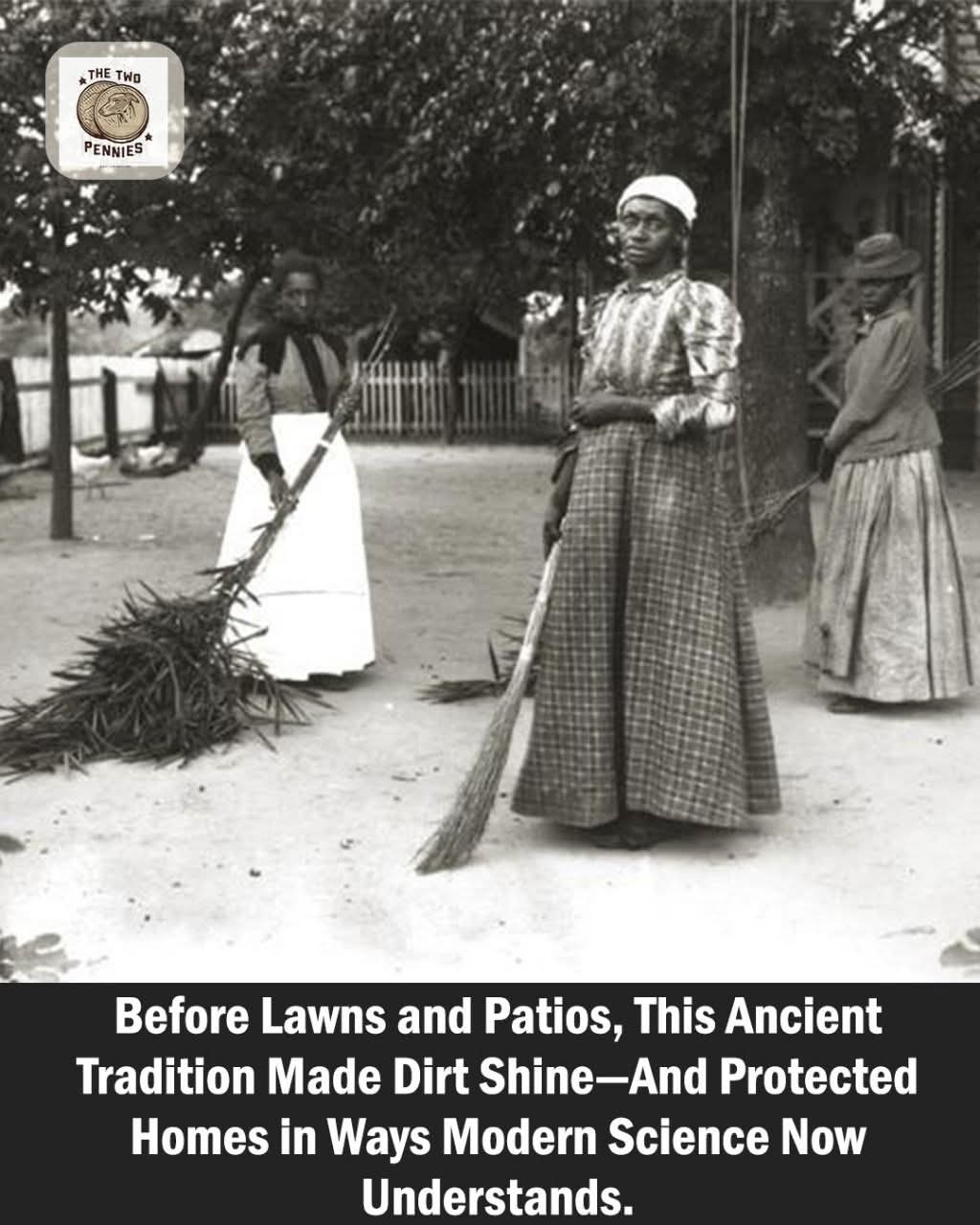In the Deep South, long before manicured lawns and patio decks, families used to sweep their yards until the bare earth gleamed like polished stone.
This wasn’t just about keeping things tidy—it was tradition, survival, and quiet pride. The custom is believed to have come with enslaved Africans who brought this practice from their homelands. Using handmade brooms made from bundled twigs or broom straw, they swept every inch of grass away from their homes. And it served a purpose.
No grass meant fewer places for snakes to hide. It reduced mosquitoes and other pests. Fires, especially from open cooking flames, were less likely to spread. Over time, the constant sweeping compacted the earth so firmly it became smooth as stone—a natural patio, where families gathered to cook, rest, and share stories.
It was also an act of welcome. A freshly swept yard signaled hospitality. And once guests left, the ground was swept again—a blessing over the home and its memories. In many households, this was done daily, sometimes multiple times a day, under the Southern sun, with patience and deep devotion.
Grass has since grown back in most places, but the memory of those earth yards lives on—a powerful symbol of resilience, creativity, and the quiet care passed down through generations.
#CulturalHeritage #SouthernTraditions
This wasn’t just about keeping things tidy—it was tradition, survival, and quiet pride. The custom is believed to have come with enslaved Africans who brought this practice from their homelands. Using handmade brooms made from bundled twigs or broom straw, they swept every inch of grass away from their homes. And it served a purpose.
No grass meant fewer places for snakes to hide. It reduced mosquitoes and other pests. Fires, especially from open cooking flames, were less likely to spread. Over time, the constant sweeping compacted the earth so firmly it became smooth as stone—a natural patio, where families gathered to cook, rest, and share stories.
It was also an act of welcome. A freshly swept yard signaled hospitality. And once guests left, the ground was swept again—a blessing over the home and its memories. In many households, this was done daily, sometimes multiple times a day, under the Southern sun, with patience and deep devotion.
Grass has since grown back in most places, but the memory of those earth yards lives on—a powerful symbol of resilience, creativity, and the quiet care passed down through generations.
#CulturalHeritage #SouthernTraditions
In the Deep South, long before manicured lawns and patio decks, families used to sweep their yards until the bare earth gleamed like polished stone.
This wasn’t just about keeping things tidy—it was tradition, survival, and quiet pride. The custom is believed to have come with enslaved Africans who brought this practice from their homelands. Using handmade brooms made from bundled twigs or broom straw, they swept every inch of grass away from their homes. And it served a purpose.
No grass meant fewer places for snakes to hide. It reduced mosquitoes and other pests. Fires, especially from open cooking flames, were less likely to spread. Over time, the constant sweeping compacted the earth so firmly it became smooth as stone—a natural patio, where families gathered to cook, rest, and share stories.
It was also an act of welcome. A freshly swept yard signaled hospitality. And once guests left, the ground was swept again—a blessing over the home and its memories. In many households, this was done daily, sometimes multiple times a day, under the Southern sun, with patience and deep devotion.
Grass has since grown back in most places, but the memory of those earth yards lives on—a powerful symbol of resilience, creativity, and the quiet care passed down through generations.
#CulturalHeritage #SouthernTraditions
0 Comments
0 Shares
2871 Views



